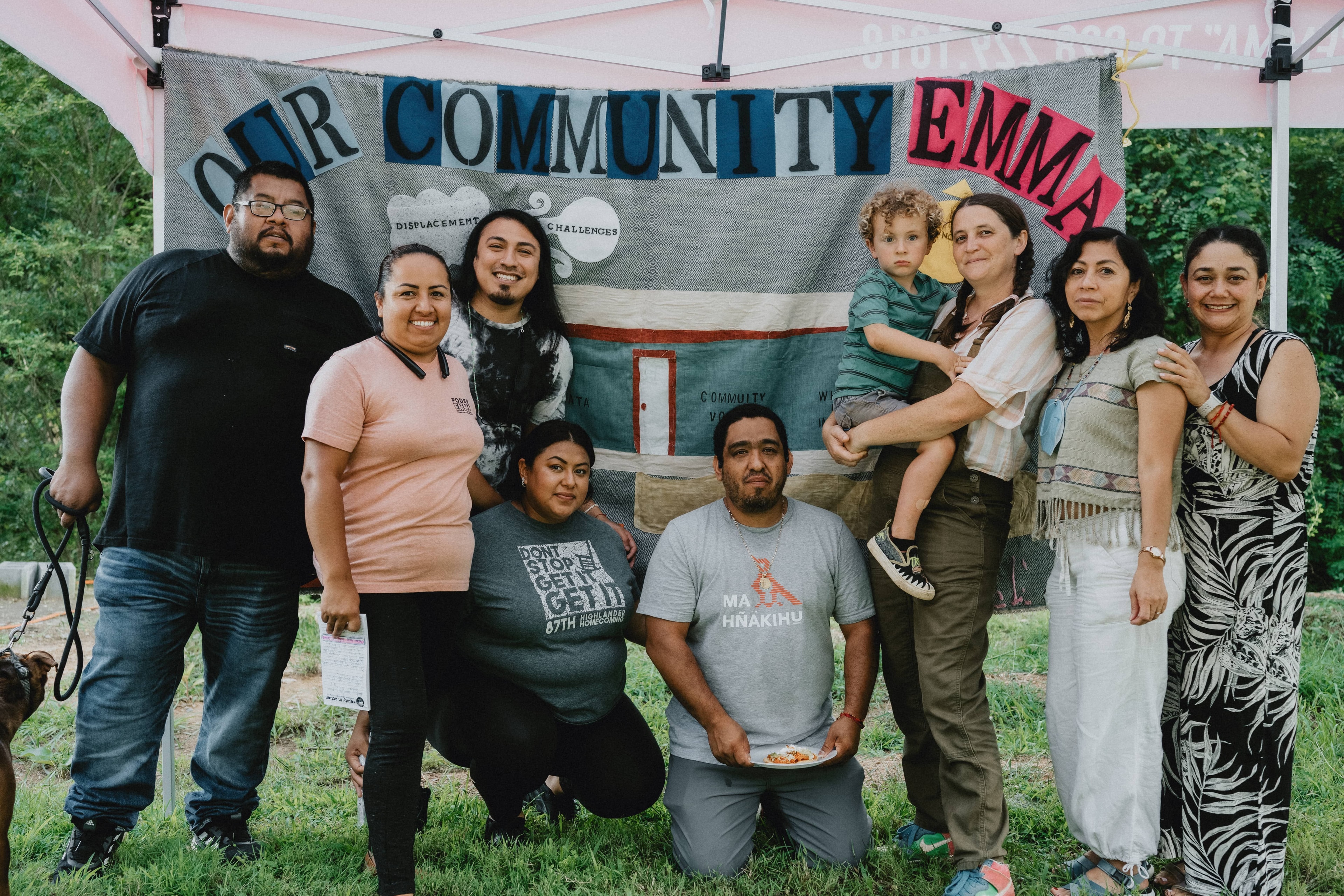RETHINKING RISK
Undoing the logic of exclusion
Worker-owner Tre tends the bar at Red Emma's in Baltimore
In the extractive economy, who is seen as financially “risky” is deeply racialized, reinforcing existing gaps in wealth and power. Seed Commons is redefining risk to rewrite these rules and shift economic power.
Traditional lending is all about managing risk—but the way that risk is assessed is deeply problematic. Working class people, who aren’t coming to table from a position of financial privilege, and often starting on the disinvested side of our country’s racial wealth gap, are going to be less likely to display the perfect credit scores that make a borrower seem “safe”—and they are going to be even less likely to be able to take on the perceived risk of investment themselves by putting up personal assets as collateral.
The end result is that a lack of wealth and economic privilege makes investing in rank and file workers and Black and Brown communities seem “riskier” than plowing more money into the inequitable status quo—so the flows of business credit go elsewhere, helping wealthier and whiter borrowers come out even farther ahead.
Seed Commons does things differently. We don’t use credit scores in our lending process at all: instead, we use close relationships between local loan officers and potential loan recipients to establish a borrower’s reliability. And we don’t require personal guarantees—most of the people whose cooperatives we want to invest in don't have those personal assets to use as collateral, and we wouldn’t want to take them even if they did. In fact, Seed Commons only takes a security interest in assets that have been purchased with the money we’ve invested.
But that doesn’t mean we are in the business of making risky loans. On the contrary, we have a rigorous alternative methodology for assessing and mitigating risk, working through our network members who are embedded in their local community. We spend a lot of time on the front end building relationships with projects that are potential borrowers, helping get them loan ready by workshopping their business plans and leveling up their cooperative business skills. And then we continue to deliver the technical assistance these borrowers need in order for their cooperative projects to thrive.
Our track record—with its low write-off rate and history of successes—shows that this approach delivers real results, arguably stewarding investment capital better than traditional approaches. A lender that is mitigating risk only by demanding collateral is going to be the last person a borrower calls when their business has a problem. But because Seed Commons mitigates risk with trust and cooperation instead, our project officers are very often the first people our borrowers turn to for help. The result: rather than sitting across the table from our projects as a disinterested or even hostile investor, we’re working together with them, on the same side, to make sure they thrive as part of a more cooperative and less extractive economy.
Increasingly, as our network’s fund grows and matures, we are also pushing back against the way risk is mobilized as a tool of economic exclusion in another direction. It’s clear, looking at the investment and venture capital landscape, that who actually gets to take risks is part of inequitable economic privilege as well. Too much capital in the community development space is structured to be fundamentally risk-averse—which means that inclusive, cooperative-focused development never gets to make anywhere near close to the same bets that happen all the time in the extractive economy.




